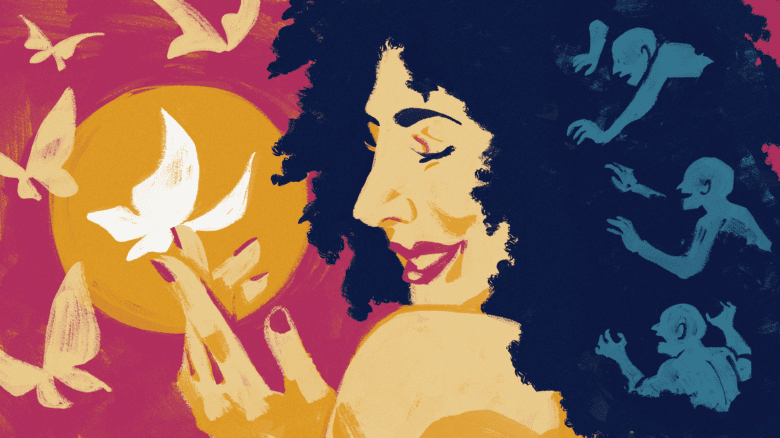A celebration of sex-addicted Peter Pan Syndrome.
That’s the tongue-in-cheek title that one reader suggested giving my last column. The column already had a tongue-in-cheek headline: “St Mary the martyr,” but I appreciated the suggestion.
The substance of that piece, aside from its flip tone, was that easy-in, easy-out relationships are a good thing. Gays and lesbians — especially gay men — have practically perfected the art of the short-term romance. Even in longer-term relationships, we have a history of leaving them with grace and determination, rather than dragging out unhappy situations for years and years. Again, I think that’s a good thing.
Not that any group has a monopoly on outside-the-box relationships. And lesbians also have a lot to be proud of — loving, non-partner living arrangements, open relationships, polyamory and so on. But that’s for another column.
In the online edition, my column was subtitled “There’s nothing noble about trying to work it out.”
But reader criticism — especially given comments that it amounts to a celebration of sex addiction and Peter Pan Syndrome — underlines the discomfort this position causes.
Staying in a relationship is not anyone’s duty. Saying so apparently invites pathologization. It hardly needs saying that holding this position is not a medical or psychological problem. It’s simply an observation based on my belief that — in the absence of a compelling collective goal — people shouldn’t make themselves unhappy if they can avoid it. I see a lot of people in sad, late-stage relationship disintegration, who think they’re doing something noble by staying. It’s not noble.
I wasn’t trying to make couples feel bad. I’m in a relationship myself, and I don’t see any contradiction between my personal life and the argument I made. However, I want to reduce the shame and anxiety that surrounds people who choose to pull up stakes. It’s brave, not cowardly, to break up with your partner when things are in the shitter.
I find the particular jibes especially interesting. A celebration of sex addiction? Labelling lust as an addiction is problematic enough on its own. But my column didn’t touch on the sex lives of people in relationships. I reject the underlying premise that good and bad sex lives are deterministically correlated to one’s status as single, happily coupled or unhappily coupled. And anyway, being in tune with one’s libido is a good thing.
The other accusation — Peter Pan Syndrome — I find especially galling. Peter Pan Syndrome is a fancy way of saying “immature.” The implication is that there’s a straight line of personal evolution going from playing the field to nuptial bliss.
In a recent review of Jenny Block’s book about polyamory, Open, the Globe and Mail’s Elizabeth Nickson illustrates this popular but misguided feeling:
“It would have sounded like excellent stuff to me in my 20s,” writes Nickson. “Certainly, I was way into polyandry before I did something, what was it, oh yeah, grew up.”
To imply a linear timeline to human development is not just silly, it’s paternalistic. The maturation process is just as likely to go the other way.
I’ve gradually relaxed out of having a rigid expectation of what my relationships ought to look like. As I’ve groped my way through casual sex, polyamory, open relationships, non-cohabiting couplehood and so on, I’ve become more comfortable with who I am and what works for me. The point isn’t that Nickson is more mature than me, or the other way around, it’s that people mature differently.
But calling the search for individual fulfillment — the terrifying freedom offered by existential philosophy — childish is bull. It’s exactly the attitude that I wanted to expose in my previous column. When doing your duty isn’t good for anyone involved, it’s time we reconsider what “duty” means.

 Why you can trust Xtra
Why you can trust Xtra


